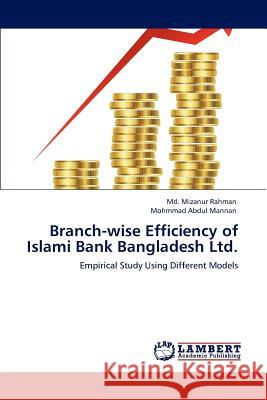Branch-Wise Efficiency of Islami Bank Bangladesh Ltd. » książka
Branch-Wise Efficiency of Islami Bank Bangladesh Ltd.
ISBN-13: 9783847303022 / Angielski / Miękka / 2011 / 68 str.
Since inception in 1983, Islami Bank Bangladesh Ltd.(IBBL) has been playing vital role in Bangladesh economy & last two decades, the average annual growth of the bank is about 30 percent. In addition, IBBL rendering social services to the generally ignored poverty-stricken households from the banking services. The branch-wise performance estimation study investigated relative efficiency of different branches of IBBL by employing panel data during 2003-2007. Result show that the average cost & profit efficiency of the bank is 82 to 84 and 86 to 94 percent during the study period, which implies that IBBL branches are relatively less efficient in containing cost; they are relatively efficient in generating profit.The average allocative & technical efficiency is 61 to 76 and 51 to 65 percent, respectively. This means that the dominant source of inefficiency is due to both technical & allocative inefficiency but technical inefficiency has got more contribution to inefficiency than allocative inefficiency. IBBL has been moderate increase in productivity growth over the years. Productivity increase in IBBL branches are mainly driven by technological change not technical efficiency change.











